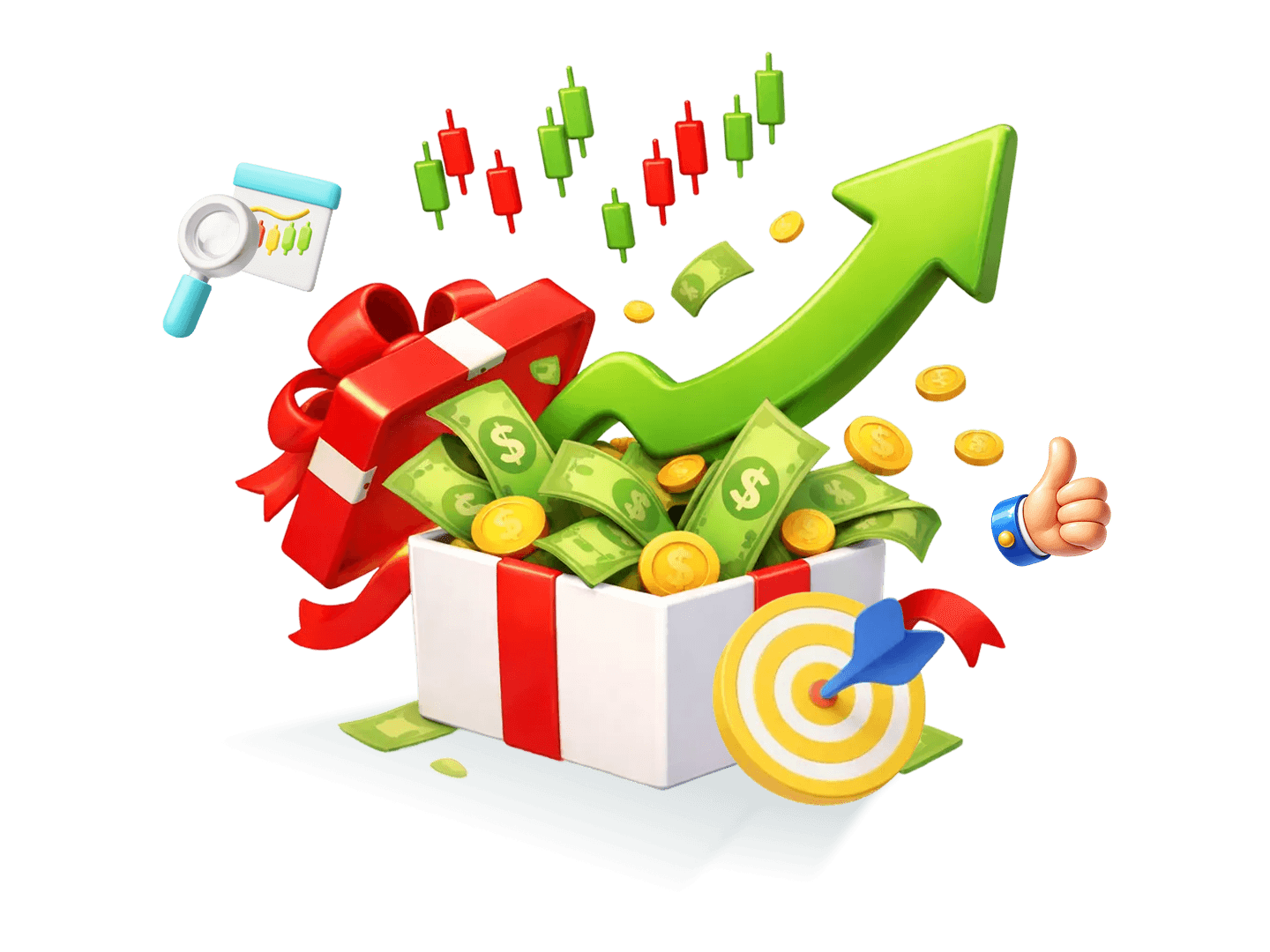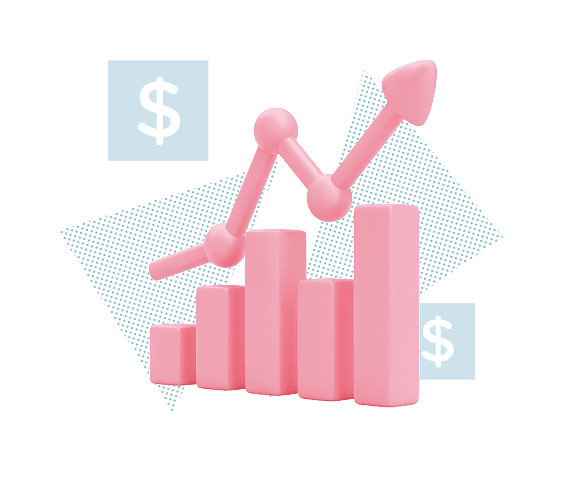Index Fund vs. ETF: The Key Differences
Updated: 12 Dec 2025
While both exchange-traded funds (ETFs) and index funds offer valuable investment opportunities for both novice and experienced investors, it's crucial to understand their distinct characteristics before making investment decisions.
Both index funds and ETFs are investment vehicles designed to track the performance of a specific market index, such as the Straits Times Index (STI) in Singapore or the globally recognised S&P 500. While they share this core objective, their structure and trading mechanisms differ.
ETFs, for example, are traded on stock exchanges throughout the trading day, similar to individual stocks. On the other hand, index funds are typically bought and sold at a price calculated at the end of each trading day.
In this article, we’ll show you the differences and similarities to determine whether an ETF or index fund best aligns with your diversification strategy.
SingSaver Exclusive Offer
Compare top brokerages on SingSaver, apply in minutes, and earn rewards, including up to S$500 cash, premium products like Apple AirPods 4 or Dyson devices worth around S$600, or exclusive provider gifts worth over S$13,000. Valid till 1 March 2026. T&Cs apply.
Other differences between index funds and ETFs
The minimum amount required to start
When it comes to the initial investment, ETFs often present a lower barrier to entry compared to index funds. ETFs are bought and sold as individual shares on the stock exchange, and the minimum investment is typically the cost of a single share. This can sometimes be around S$100, making ETFs accessible to investors with limited capital.
In contrast, index funds, traded at the end-of-day price, may have higher minimum investment amounts set by the fund managers. This difference in structure can make ETFs a potentially more accessible option for beginner investors or those starting with smaller sums.
Expected capital gains taxes
ETFs generally offer greater tax efficiency compared to index funds due to their structural differences. When ETF shares are traded, they’re typically exchanged between investors rather than requiring the fund itself to sell underlying securities. As a result, capital gains taxes are generally only incurred when the investor sells their ETF shares.
In contrast, index funds may trigger capital gains taxes more frequently. To meet redemption requests, fund managers may need to sell securities within the fund, and any resulting capital gains are distributed proportionally to the fund's investors. This can lead to investors owing capital gains taxes even if they haven't personally sold their index fund units.
However, it's important for Singaporean investors to note that the applicability and impact of capital gains taxes can vary depending on their individual circumstances, the specific broker they use, and the investment vehicle through which they invest.
» Ready to get started? Learn how to buy ETFs.
The cost of owning ETFs and index funds
Both ETFs and index funds can be quite cost-effective, particularly in terms of their expense ratios. You can often find both types of funds with low expense ratios, sometimes even around 0.24% per annum. The expense ratio represents the annual fee charged to manage the fund and is a crucial factor to consider as it may affect your investment returns in the long run.
However, there's a potential cost difference when it comes to trading. ETFs are traded on stock exchanges, and transactions may incur brokerage commissions. These commissions are fees paid to your broker every time you buy or sell ETF shares.
So, if you trade ETFs frequently, these commissions can add up and consume your profits. In contrast, index funds, especially when purchased directly from the fund provider, do not generally involve shareholder transaction costs.
Another cost specific to ETFs is the bid-ask spread. This is the difference between the highest rate a buyer is willing to pay for an ETF share (bid) and the lowest price a seller is willing to accept (ask). While this spread exists, it's usually relatively small, especially for ETFs with high trading volumes, such as those tracking major market indices.
» Related: The best-performing tech ETFs.
SingSaver x CMC Markets Exclusive Offer
Open a CMC Markets account and get 2,500 Max Miles by HeyMax (worth S$45), an upsized S$20 cash via PayNow or S$40 Grab Voucher. Valid until 1 March 2026. T&Cs apply.
Similarities between ETFs and index funds
Despite their structural differences, both ETFs and index funds offer accessible and cost-effective investment options designed for long-term wealth accumulation. They also share key characteristics that have contributed to their popularity among investors.
Diversification
Both ETFs and index funds provide instant diversification by tracking a collection of securities within a specific market index. For example, an ETF or index fund that tracks the STI will hold shares of at least the top 30 companies listed on SGX. This diversification significantly reduces the risk associated with investing in individual stocks.
Low costs
Both ETFs and index funds are typically passively managed, meaning their holdings mirror a specific index rather than being actively selected by a fund manager. This passive management approach results in considerably lower management fees compared to actively managed funds. These lower fees are crucial because they allow more of your investment returns to compound over time, leading to greater long-term growth.
Strong returns in the long run
Both ETFs and index funds are known for their potential to deliver strong long-term returns, as they closely mirror the performance of their underlying market indices. This characteristic makes them well-suited for passive investors who prioritise consistent, long-term growth over short-term market fluctuations.
Also, passively managed index funds have historically demonstrated a tendency to outperform actively managed mutual funds over extended periods. While actively managed funds may offer the potential for short-term gains due to the fund manager's expertise and active trading, consistently beating the market over the long haul is statistically challenging. The higher expense ratios associated with actively managed funds further contribute to their potential underperformance compared to passively managed options.
To illustrate the long-term growth potential, the S&P 500, a widely tracked index of large-cap U.S. companies, has historically delivered an average annual return of over 10% since the 1950s. This highlights the potential for significant wealth accumulation through passively managed investments over time.
It's worth noting that ETFs can be designed to track a wide variety of indices, including those focused on specific sectors, geographic regions, or company sizes. This allows investors to gain targeted exposure to different segments of the market in addition to broad market indices like the STI or S&P 500.
OANDA Welcome Offer
Open a new OANDA account and make at least 5 qualifying trades (min. USD10,000 per trade) within 60 days of your first trade to qualify for welcome bonuses with rewards going up to S$18,888 when you hit the highest tier. Valid till 28 February 2026. T&Cs apply.
Relevant articles
What are Exchange-Traded Funds (ETFs)? A Comprehensive Guide for Beginners
Unlock the power of diversified investing with ETFs – a simple, cost-effective way to build your portfolio
Best brokerage accounts
Trade smarter with the top brokerage accounts offering low fees, powerful platforms, and great support.



